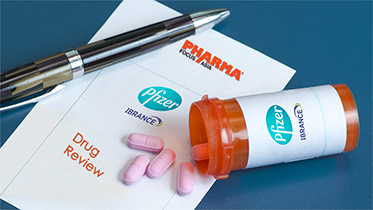Condition: Estrogen Receptor (ER)-Positive, HER2-Negative Postmenopausal
Effectiveness: ★★★
Ease of Use: ★★★
Satisfactory Index: ★★★
Therapeautic drug, Ibrance (Chemical name: Palbociclib), recently approved by the U.S. Food and Drug Administration in February 2015, is intended to be paired with the hormonal therapy medicine Femara (Chemical name: Letrozole) as a comprehensive treatment for locally advanced-stage or metastatic, hormone-receptor-positive, HER2-negative breast cancer. This condition has remained persistent in numerous postmenopausal women when treated with hormonal therapy in the preceding years.
While sharing her experience with this dual treatment, one patient said, “I was part of the stage III study for this medication, upon its FDA approval. The drug was effective and held back progression for 27 months. The dosage includes 3 menstrual cycles.”
A study indicates that Ibrance combined with the hormonal therapy Faslodex (Chemical name: Fulvestrant) catalysed and accelerated progression-free survival compared with far more efficaciousness than Faslodex alone in postmenopausal women diagnosed with hormone-receptor-positive, HER2-negative advanced-stage breast cancer.
Another user of Ibrance delineated the negative aspects of taking the drug as part of the coupled treatment, “Combo use of Ibrance and Faslodex shots induced gagging and coughing which are the worst side effects along with cramping from the shots. I can live with the drugs but the gagging and coughing are intolerable. Tumor markers and scans stable after three cycles.”
There are, however, other patients who belibe the side effects aren’t as detrimental. One such patient said, “I’ve been taking this in conjunction with letrozole for about 6 months. I’ve experienced only minor side effects from the letrozole. There’s been no progression on my stage IV metastatic breast cancer so far though.”
